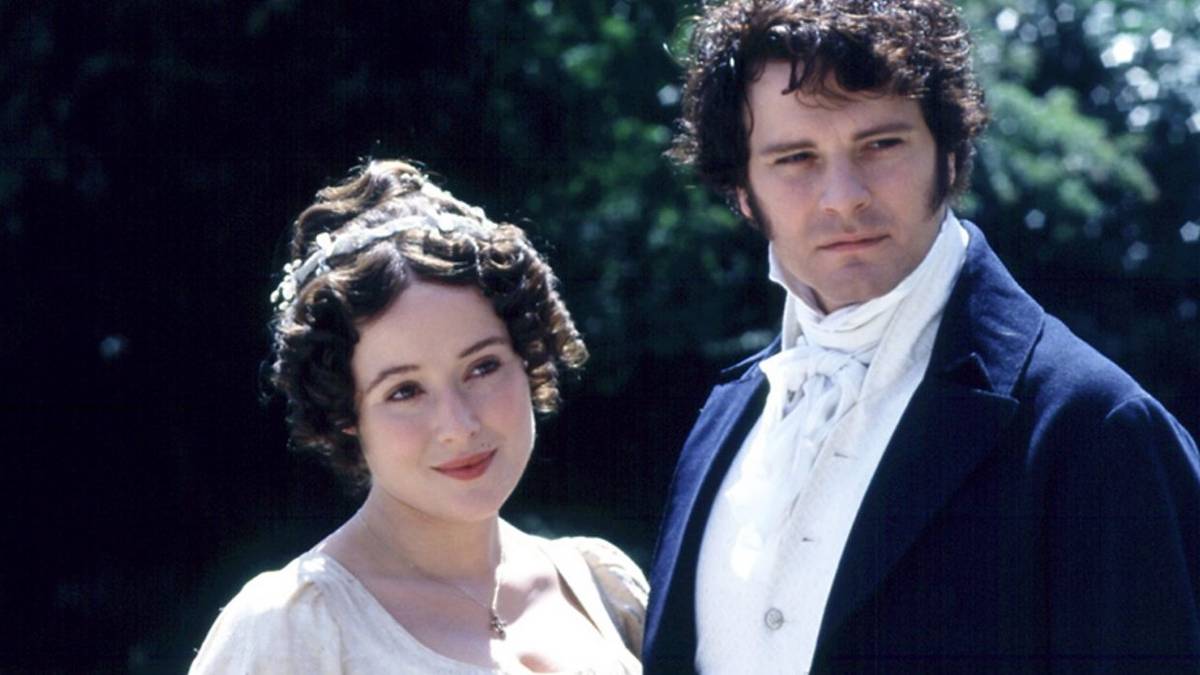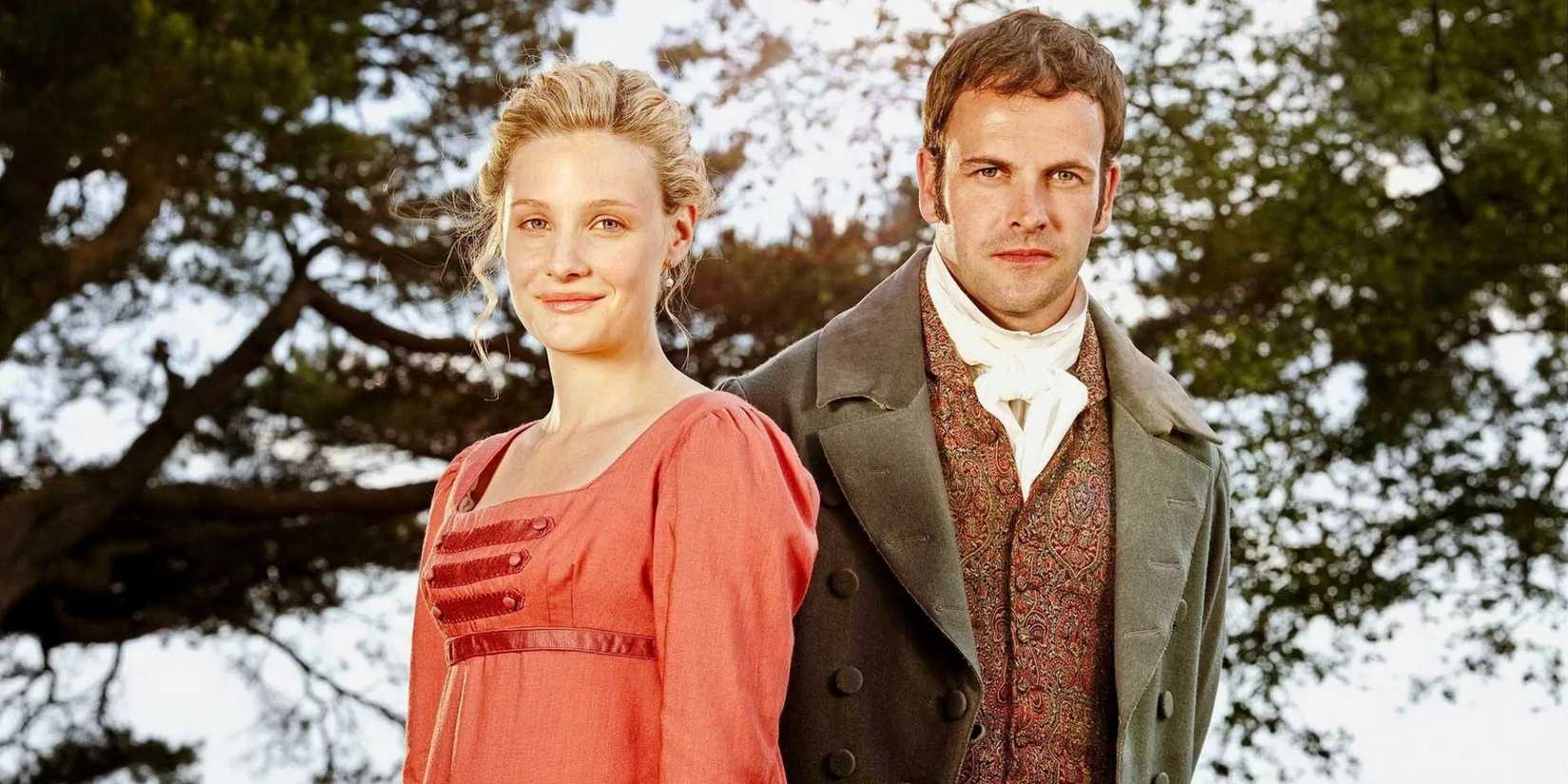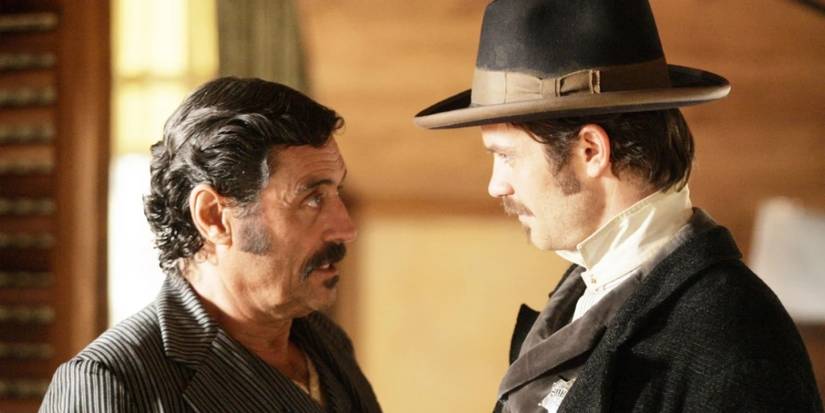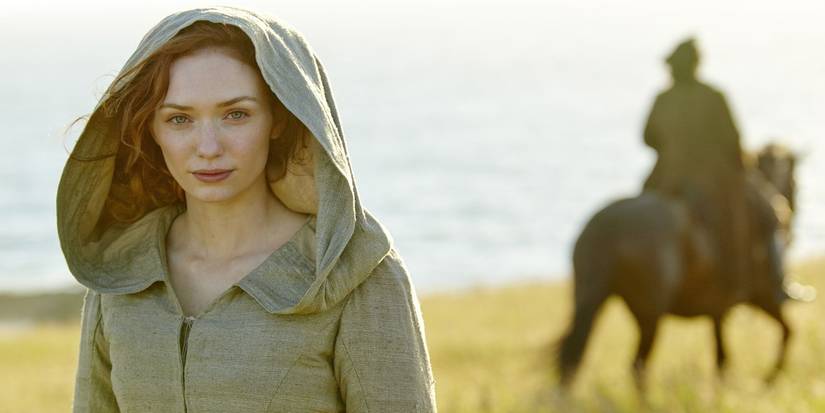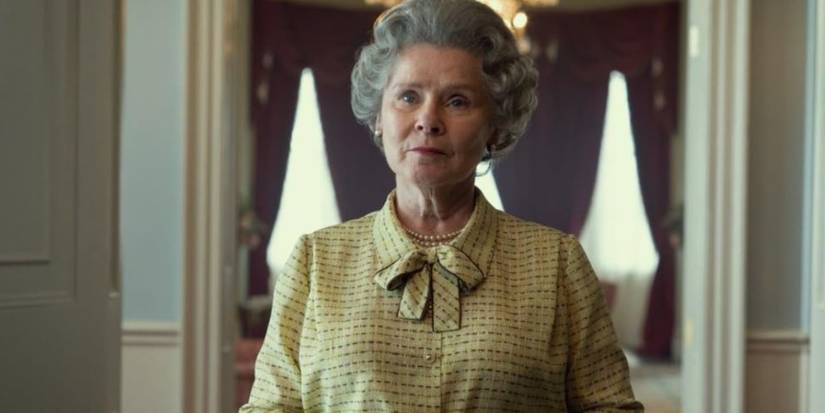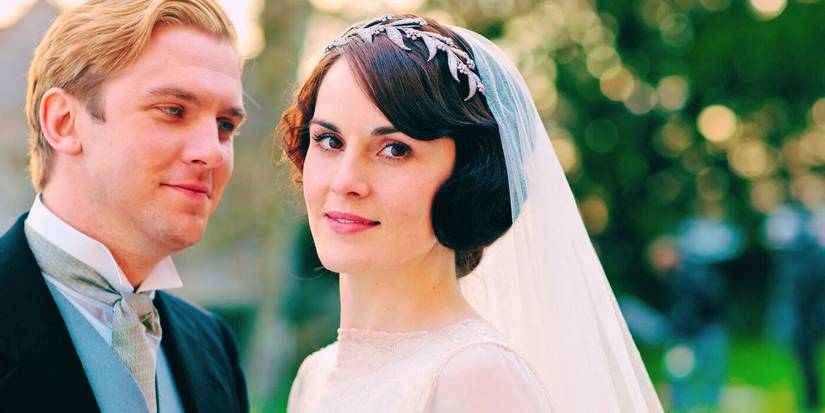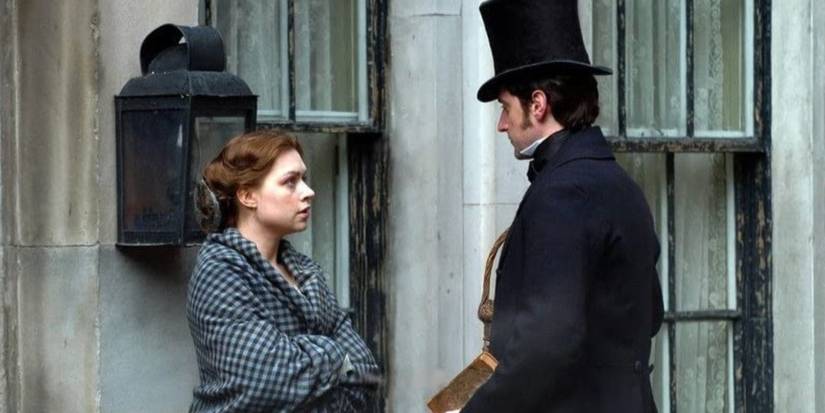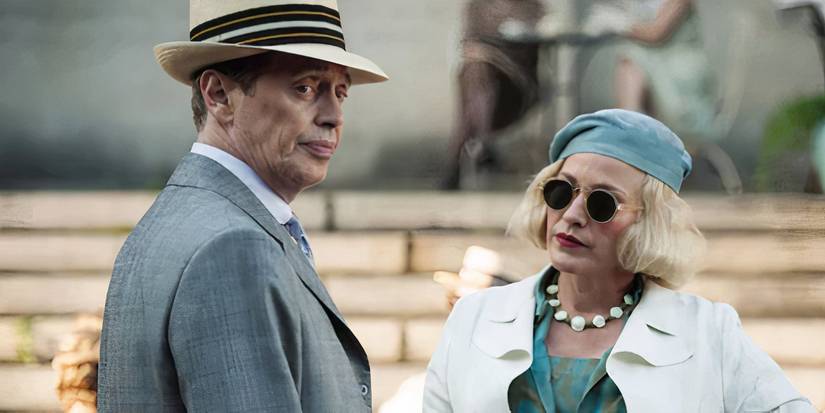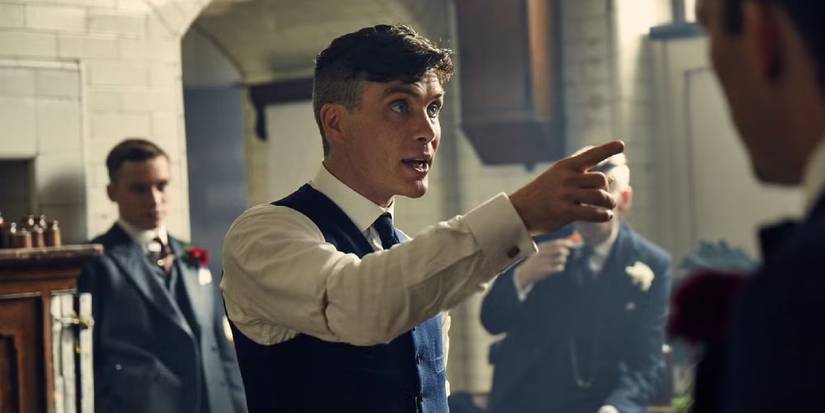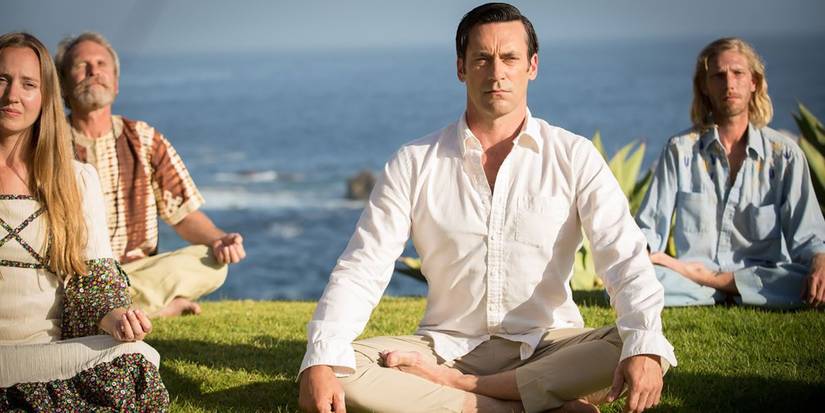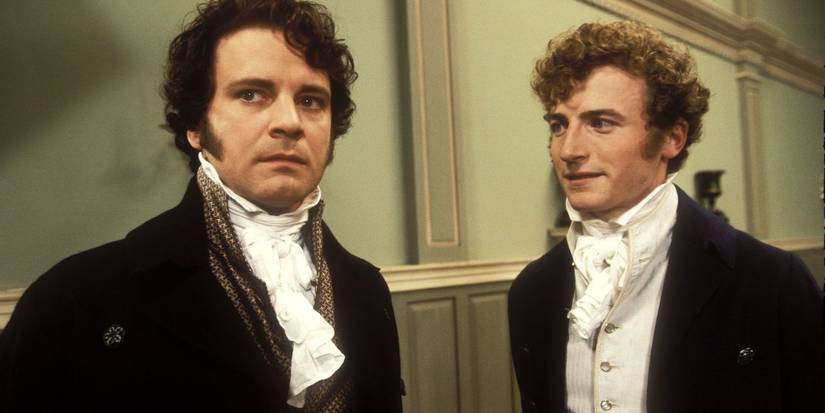Period dramas have long captivated audiences since they provide context to historical events. A great period drama combines historical authenticity with compelling storytelling, bringing the past to life in a way that feels both immersive and emotionally resonant. The best period dramas explore universal themes like love, power, identity, and social change through the lens of a specific time and place, making history feel immediate and relevant.
Some of the best period dramas immerse viewers in the not-so-distant past, and ask fans to consider how society has evolved in such a short time. Other period dramas tackle more remote history, and feature characters who have problems that seem downright modern. The best period drama series of all time invite viewers to consider the fact that, while times may have changed, humans have essentially always been the same.
10
‘Emma’ (2009)
Emma is based on Jane Austen’s novel of the same name, and follows the charming yet meddlesome Emma Woodhouse (Romola Garai), a wealthy young woman in Regency-era England who delights in matchmaking her friends. Confident in her social intuition, Emma attempts to pair her friend Harriet Smith (Louise Dylan) with various suitors, while remaining oblivious to her own feelings. As romantic entanglements unravel and truths come to light, Emma gradually matures, recognizing the limits of her influence.
Emma stands out as a period drama because it’s a faithful adaptation of one of Austen’s most beloved works. At the same time, the series is contemporary enough to appeal to new generations of those wanting to invest in Austen’s stories. The series adds depth to the source material by exploring themes of class, loneliness, regret, and self-awareness. Die-hard Austen fans and those who love historical dramas will find much to love in this charming series.
9
‘Deadwood’ (2004-2006)
Deadwood is a Western TV series set in the lawless frontier town of Deadwood, South Dakota, during the late 1870s, shortly after the Black Hills Gold Rush. The series explores the transformation of the town from a chaotic camp into a structured society, focusing on the complex power struggles, brutal violence, and uneasy alliances among its residents. The series follows the stories of real historical figures, including former lawman Seth Bullock (Timothy Olyphant), calculating saloon owner Al Swearengen (Ian McShane).
Deadwood is such a phenomenal period drama because it’s gritty, poetic, morally complex, and unapologetically raw. The series presents the American frontier not as a romanticized Wild West, but as a brutal, lawless society struggling toward civilization. The violence is never gratuitous. Instead, it’s used to highlight everything people had to do to survive in the new world that was the American West. The show explores how laws are made, not in theory, but in blood, money, and compromise.
8
‘Poldark’ (2015-2019)
Poldark is a sweeping British period drama set in 18th-century Cornwall, following the life of Ross Poldark (Aidan Turner), a war veteran who returns home from the American Revolutionary War to find his estate in ruins and the woman he loved engaged to his cousin. As he rebuilds his life, Ross navigates class conflict, political unrest, and personal turmoil, especially through his relationship with Demelza (Eleanor Tomlinson), a former servant who becomes his wife. Poldark is based on the novels by Winston Graham.
Poldark is such an important period drama because it’s a sweeping meditation on concepts like identity, justice, and resilience. The central romance is a unique one, since Ross and Demelza have to navigate class struggle, betrayal, and hardship. Their story is made up of more than simple romantic tropes. The series never romanticizes the British aristocracy. Instead, it highlights the effect that this system had on real people.
7
The Crown’ (2016-2023)
The Crown is a historical drama that chronicles the reign of Queen Elizabeth II beginning with her unexpected ascension to the British throne in the 1940s and spanning the major political and personal events of the 20th and 21st centuries. The monarch is played by Claire Foy, Olivia Colman, and Imelda Staunton. Each season of The Crown explores how the British royal family has navigated the tension they experience between doing their duty and living the lives they want.
The Crown stands out as a banger of a period piece because it humanizes an institution that has always been inaccessible to anyone outside of it. The series strips away the mystique of royalty to reveal the personal sacrifices, emotional conflicts, and moral dilemmas behind the crown. Ultimately, The Crown reflects how the British monarchy has navigated how fast and furious society has changed since Elizabeth II first ascended to the throne.
6
‘Downton Abbey’ (2010-2015)
Downton Abbey is a British period drama set in the early 20th century, following the lives of the aristocratic Crawley family and their household staff at the grand Downton estate. The series follows Lord Grantham (Hugh Bonneville), his wife Lady Grantham (Elizabeth Lee McGovern), and the challenges they face running their house in the face of massive changes. Downton Abbey offers a blend of upstairs-downstairs drama combined with historical insight, all wrapped in the charm and tension of a society at a crossroads.
Downton Abbey is a banger of a period drama because it tells deeply human stories about people from different class backgrounds as they experience massive societal changes. At its core, the series captures the beauty and fragility of a changing world, all while delivering characters and moments that stay with audiences long after the final curtain falls. Downton Abbey explores the tension between tradition and modernity, which people in every generation have had to reckon with.
5
‘North & South’ (2004)
North & South is a British drama based on Elizabeth Gaskell’s novel of the same name. The series follows Margaret Hale (Daniela Denby-Ashe), a strong-willed young woman from southern England who moves with her family to the industrial northern town of Milton. There, she confronts stark class divisions, harsh working conditions, and growing tensions between mill owners and workers. Amid this social unrest, she clashes with, and gradually develops feelings for, mill owner John Thornton (Richard Armitage).
North & South is such a banger because its protagonist’s personal journey mirrors the social change around her. As Margaret learns to see past her southern prejudices and embraces the complexity of the industrial North, she’s able to see the world around her more clearly. The series tackles difficult issues like class struggle, workers’ rights, and capitalism in a way that’s both historically grounded and strikingly modern.
4
‘Boardwalk Empire’ (2010-2014)
Boardwalk Empire is a historical crime drama set during Prohibition-era Atlantic City, that follows Enoch “Nucky” Thompson (Steve Buscemi), who’s a corrupt political figure who straddles the worlds of politics and organized crime. As bootlegging profits soar, Nucky becomes entangled with gangsters, law enforcement, and powerful figures like Al Capone (Stephen Graham) and Lucky Luciano (Vincent Piazza). The series explores the dark side of the American Dream, and the unique challenges America faced in the 1920s.
Boardwalk Empire is one of the best period dramas ever because it doesn’t shy away from showing how violent America’s past was. The series provides a realistic, grim view of how America’s institutions were shaped by illicit wealth and crime. Boardwalk Empire leans into the moral ambiguity of some of America’s most well-known historical figures who shaped American history in their own way. Ultimately, the series is an effective way to highlight how power is gained, held, and ultimately lost.
3
‘Peaky Blinders’ (2013-2022)
Peaky Blinders is a stylish, gritty British crime drama set in post–World War I Birmingham, following the rise of Tommy Shelby (Cillian Murphy) a cunning and ambitious leader of the Peaky Blinders gang. As Tommy expands his family’s criminal empire into politics and international intrigue, he faces constant threats from rivals, law enforcement, and his own inner demons. While Peaky Blinders focuses on Shelby’s life and career, it also provides commentary on the historical upheaval of British society at this time.
Murphy’s portrayal of Shelby alone makes Peaky Blinders a banger, since he plays him as a war-scarred leader who’s both strategist and survivor. The show captures the trauma of World War I, the rise of socialism and fascism, economic instability, and the shifting class system with grit and authenticity. The series is unapologetically violent, but never without purpose. Loss, grief, and trauma are recurring themes, particularly from war and gang warfare.
2
‘Mad Men’ (2007-2015)
Mad Men is set in the 1960s, and follows the lives of advertising executives at the fictional Sterling Cooper agency on Madison Avenue in New York City. The series specifically revolves around advertising executive Don Draper (Jon Hamm), a brilliant creative director with a mysterious past, as he navigates a rapidly changing cultural landscape marked by shifting gender roles, civil rights, and corporate ambition. Mad Men explores how each of the characters navigate challenges in their personal and professional lives.
Mad Men stands out as a period drama because it brilliantly highlights the corruption and greed that characterized this moment in American history. The series tackles complex themes like loneliness, desire, disillusionment, and the pursuit of meaning in a materialistic society. This showcases the fact that, even though Mad Men is a period piece, it’s a timeless reflection on the struggles that human beings have always had to face.
1
‘Pride and Prejudice’ (1995)
Pride and Prejudice is an adaptation of one of Jane Austen’s most well-known novels. The series follows Elizabeth Bennet (Jennifer Ehle) as she navigates societal expectations, family pressures, and her evolving feelings for the enigmatic and reserved Mr. Darcy (Colin Firth) in early 19th-century England. Pride and Prejudice launched Firth into stardom, and is considered by many to be a definitive adaptation of this story.
Pride and Prejudice stands out as a period piece because it’s such an effective adaptation of one of the most important English literary works of all time. The series captures the elegance that defines Austen’s work and allows the characters to lean into the charm and wit of the source material. Ultimately, Pride and Prejudice stands out as a timeless period drama that’s such a banger because it showcases the emotional resonance of the novel.
